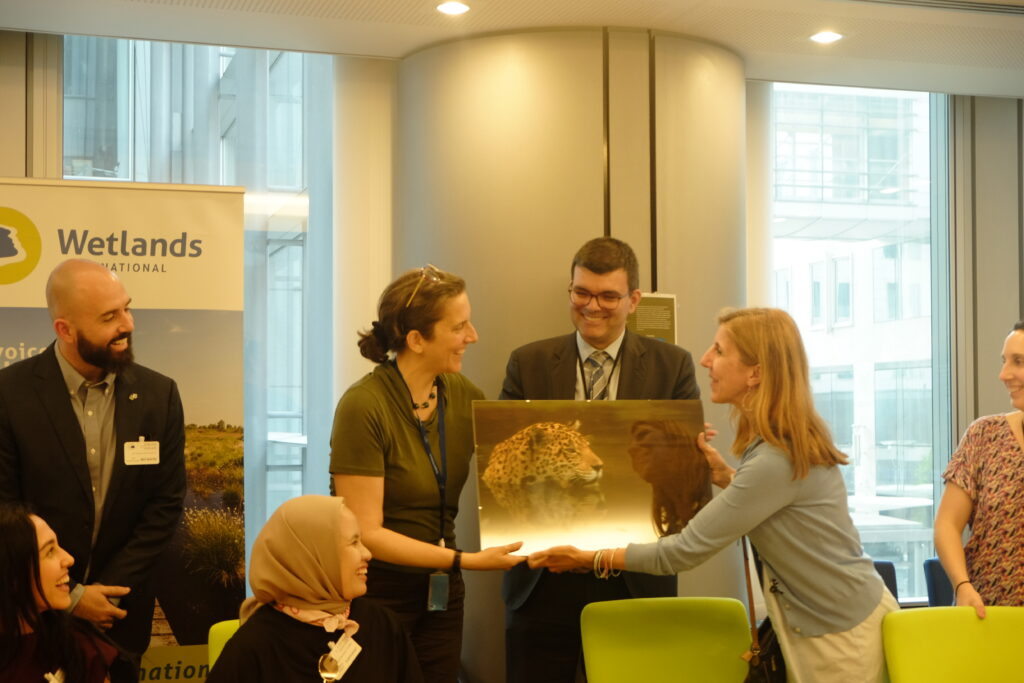
Amazon week: from the Pantanal discussed in Brussels to COP30 in Belém
As momentum builds toward COP30 in Belém (Brazil), we participated in the Amazon Week 2025 with a powerful event at the European Parliament in Brussels. For the third time in a year, we put the world’s largest tropical wetland on the spotlight of EU decision-makers: the Pantanal. A testament to the growing awareness and urgency around wetland restoration.
Moderated by Paula Martinelli from Wetlands International global office, this latest event brought together policymakers, diplomats, indigenous voices, and environmental experts around a shared vision: scaling up wetland partnerships for climate resilience, biodiversity protection, and sustainable development.
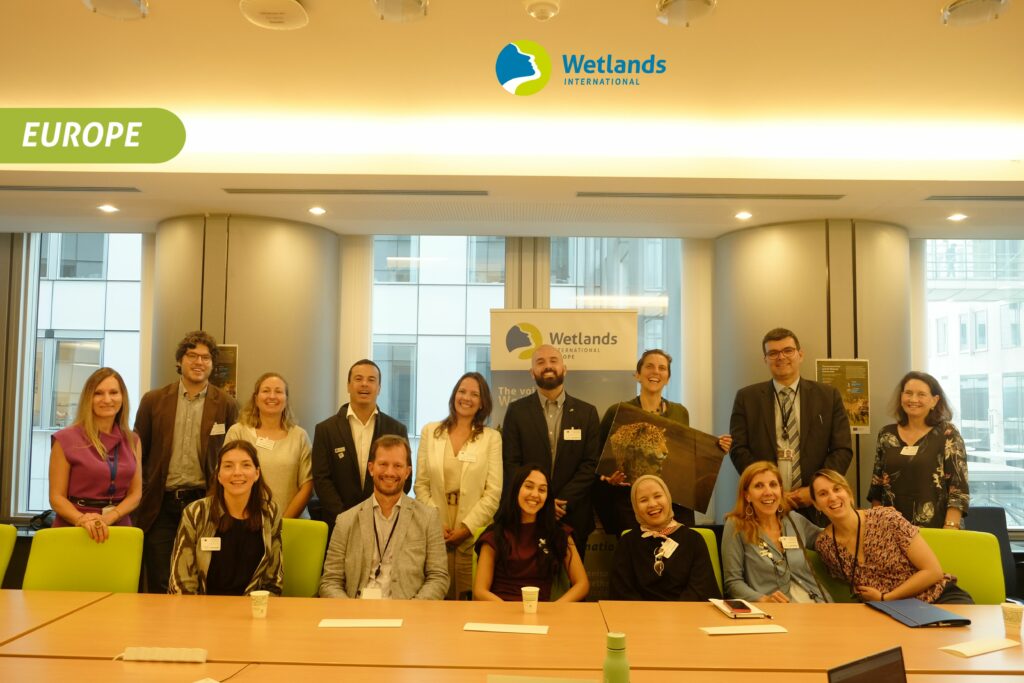
The Amazon and Pantanal: interconnected giants
The Amazon and Pantanal are more than just iconic names. As Paula Martinelli opened the session, she reminded us that these ecosystems form a deeply connected system. The Amazon’s moisture feeds a “flying river” of clouds that sustains the seasonal flooding of the Pantanal – floods that support its rich biodiversity and local livelihoods.
Yet both are under growing threat from deforestation, pollution, and unsustainable land use. In this context, new cross-regional alliances like the Pantanal Pact and proposals for an EU Wetlands Partnership offer real hope for integrated, scalable action.
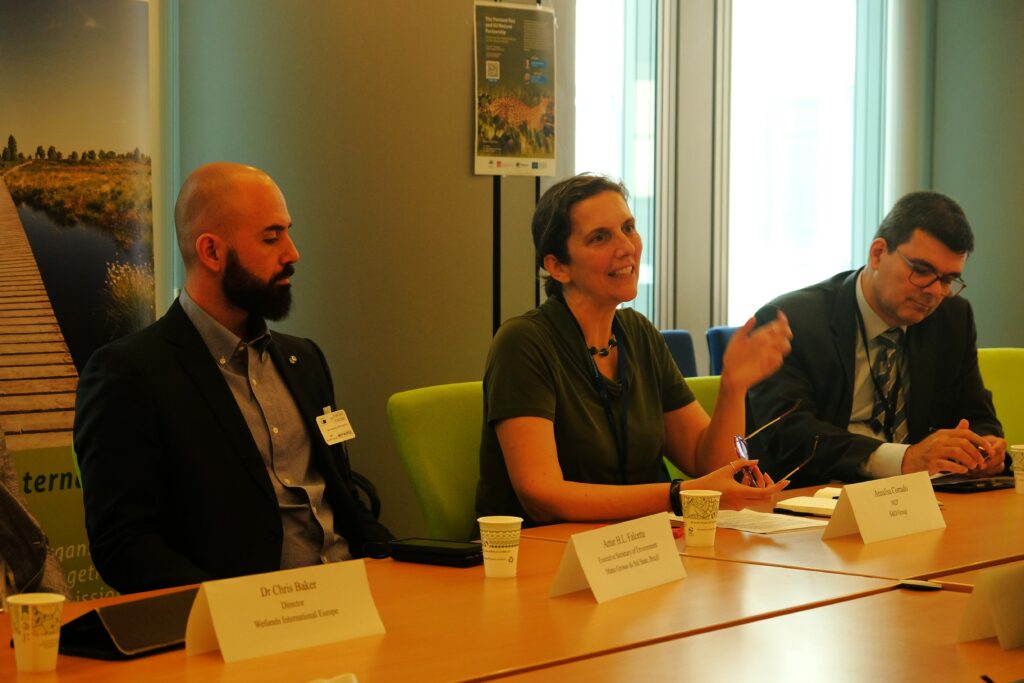
In a moving keynote, our event host MEP Annalisa Corrado (Socialists & Democrats group) made it clear: “Wetlands are the lifeblood of our planet.” She urged her fellow Europeans and international partners to make wetlands central to climate negotiations and investments: “Let’s not just prepare for COP30. Let’s use it as a catalyst to align political commitments, financing tools, and cooperation strategies.”
Annalisa Corrado also emphasized the strategic and symbolic power of COP30 taking place in Belém, in the Amazon basin: “To our Brazilian partners, your leadership inspires us. Together, we can show that climate ambition and social inclusion go hand in hand.”
Brazil’s vision: wetlands as a bioeconomy and climate solution
As panelist, Elias Santos, Deputy Head of the Brazilian Mission to the EU, echoed the urgency and opportunity. With Brazil hosting COP30, he highlighted Brazil’s ambition to lead on climate adaptation, sustainable livelihoods, and inclusive development through wetlands and bioeconomy strategies. “Governments can’t do this alone,” he noted, stressing the need for partnerships, including with the EU’s Global Gateway initiative, and referencing Brazil’s updated NDC (Nationally Determined Contribution).
After his speech, a video screening from the Kadiwéu Indigenous Territory showcased how indigenous communities are actively safeguarding wetlands like the Pantanal and Cerrado, ecosystems under pressure from fires and deforestation. Their message was clear: local leadership matters, and partnerships must include those who’ve been stewards of these ecosystems for generations.
The Pantanal pact: local action with global relevance
Our keynote speaker Artur Falcette, Executive Secretary from the State Secretariat of Mato Grosso do Sul, presented the Pantanal pact. This pioneering multi-stakeholder initiative brings together state authorities, farmers, cooperatives, and indigenous groups to conserve and sustainably manage the Pantanal. He notably emphasized that:
- Over 60% of the Pantanal remains preserved, much of it through private landowners.
- The Pact uses payment for ecosystem services (PES) to incentivize conservation, but sustainable financing is still lacking.
- There’s a real need for long-term public-private investment to avoid a shift toward more destructive land uses like intensive cattle ranching.
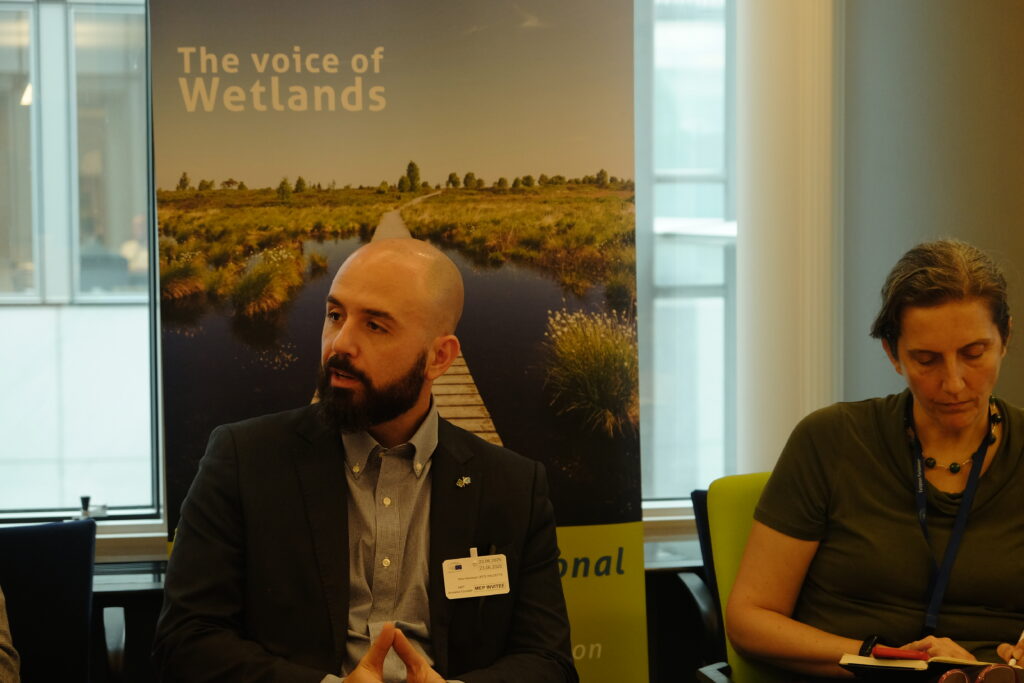
Following this discussion, our director Dr. Chris Baker underlined that “Wetlands are global commons that underpin food, water, and climate security. And their degradation is accelerating driven by both local pressures and global trade flows, including those linked to the EU.” He called for implementing the Wetland Partnerships mechanism as a means to connect initiatives like the Pantanal Pact with EU priorities and international finance, particularly under the Global Gateway Investment Agenda.
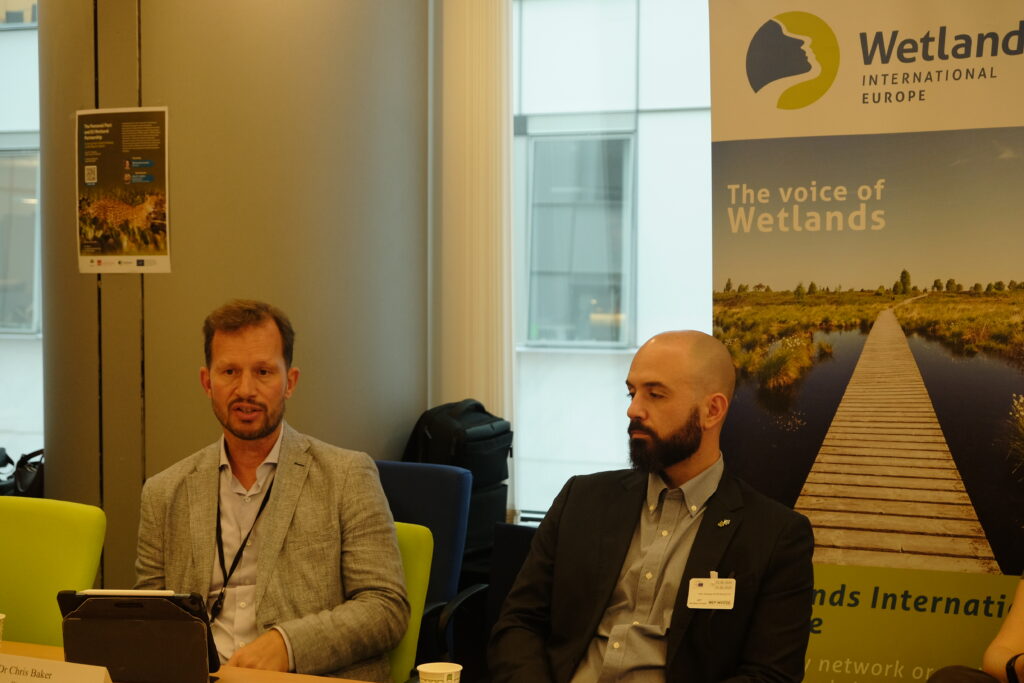
Wetlands can no longer be viewed as secondary issues. With just months to go before COP30, the call from Brussels is clear: build Wetland Partnerships, scale up investment, and deepen EU-Brazil cooperation – for the Pantanal, the Amazon, and the future of our planet.
